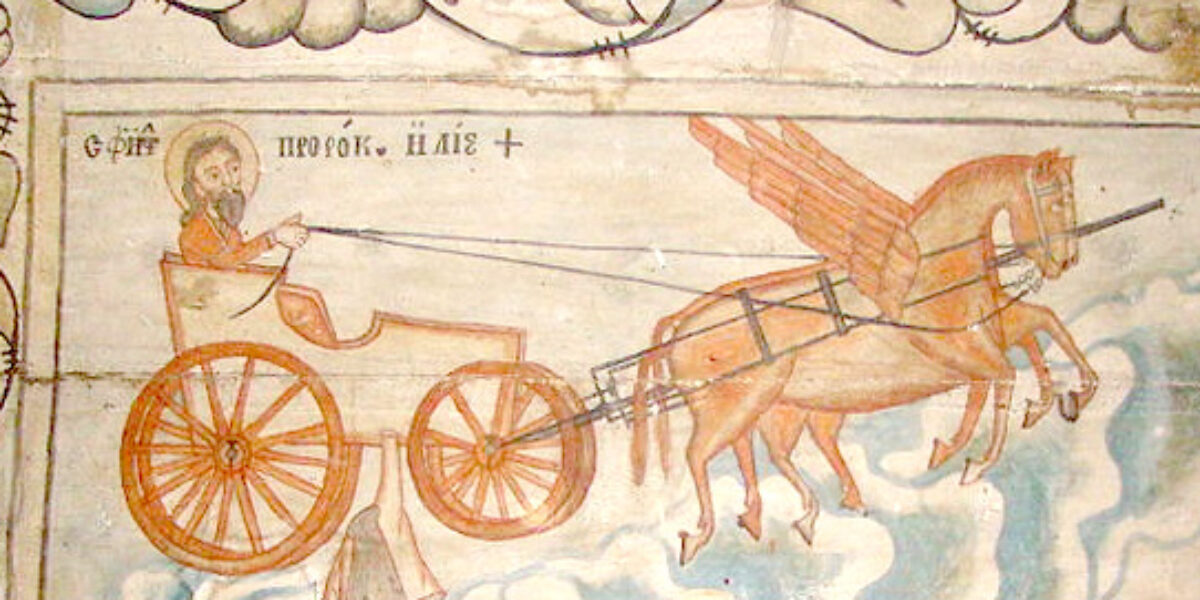People have attempted to defy death for thousands of years but they have failed. Elijah, who was whisked to heaven in a whirlwind, didn’t fail. Read more about this death-defying prophet.
Elijah was a prophet who lived in Israel from around 899 to 850 B.C. This was after the Israelite kingdom of David and Solomon had divided into northern (Israel) and southern (Judah) kingdoms. In Elijah’s day, many people in the northern kingdom were worshiping foreign gods such as Baal and Asherah (see the mini-article called “Canaanite Gods and Goddesses”). The worship of these gods was encouraged by Israel’s King Ahab and his Phoenician queen, Jezebel (1 Kgs 16.30-33; 21.25-29). At this time, Elijah seems to have been the only prophet who had the courage to challenge the influence of powerful people.
Elijah challenged the priests of Baal to see whose god was stronger (1 Kgs 16.29–19.18). And he confronted Ahab and Jezebel because they killed a man named Naboth just so they could take his land and vineyard (1 Kgs 21). After this, he challenged Ahab’s son, Amaziah, when Amaziah turned to the god “Baalzebub” for guidance instead of turning to the Lord (2 Kgs 1.1-16). And finally, Elijah challenged the false worship and cruel behavior of Jehoram, king of the southern kingdom, Judah (2 Chr 21.12-15).
Elijah was also known for his miracles. He predicted a drought (1 Kgs 17.1), provided food that would not run out (1 Kgs 17.14), raised a dead boy back to life (1 Kgs 17.17-24), and called for fire to come from heaven (1 Kgs 18.36-38; 2 Kgs 1.12).
According to 2 Kings 2.11, Elijah did not die but was taken to heaven in a “strong wind” (or whirlwind). This story probably led to the belief that Elijah would return one day (Mal 4.5). Many centuries later, some people believed that John the Baptist was Elijah (Matt 11.14; 17.10-13; Luke 1.17). Others thought Jesus was Elijah (Matt 16.14; Luke 9.8; John 1.21). See also Mark 9.11-13.




